- Home
- insider picks
- news
- I've flown on 3 five-star airlines in business class this year and there was a clear winner
I've flown on 3 five-star airlines in business class this year and there was a clear winner
Taylor Rains

- I've flown on five-star carriers Singapore Airlines, All Nippon Airways, and Korean Air this year.
- The ultra-long-haul journeys were in business class across the Pacific Ocean.
Since January, I've spent dozens of hours leapfrogging across the Pacific Ocean on three roundtrip flights between the US and Asia.
My trips were on Singapore Airlines, All Nippon Airways, and Korean Air. The companies are considered by airline ranking website Skytrax as three of only 10 five-star carriers in the global industry.
Half of the legs I was booked in economy — experiences that made me realize how mediocre US products are comparatively.
I sat at the front of the plane for the other three flights, though.
After the ultra-long-haul journeys, I found the three high-class airlines' business products easily delivered in terms of comfort and service, but just one checked every single box.
Here's how Singapore, ANA, and Korean's premium cabins compare. Insider paid a media rate for these journeys.
My span of luxury flying started with an 18-hour trek from Singapore to New York's JFK International Airport in January.
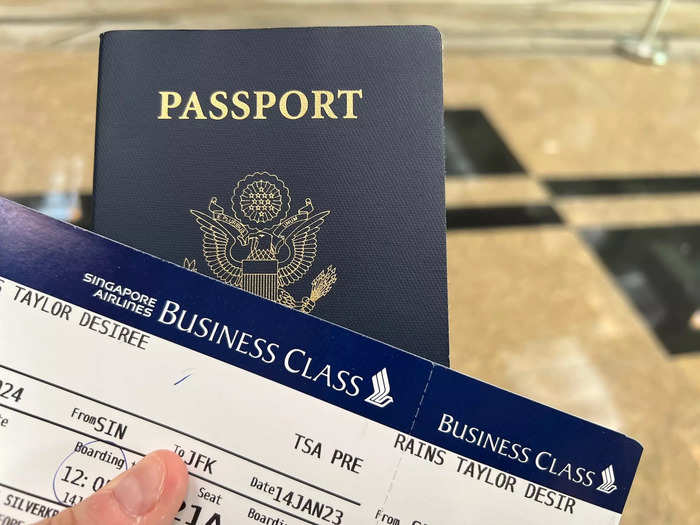
This bucket-list route is the world's longest flight, stretching more than 9,500 miles between the tiny island nation and New York.
Singapore uses an Airbus A350ULR on this route equipped with only business and premium economy seats.
I then flew on Japan's largest airline, ANA, from New York-JFK to Tokyo's Haneda Airport.
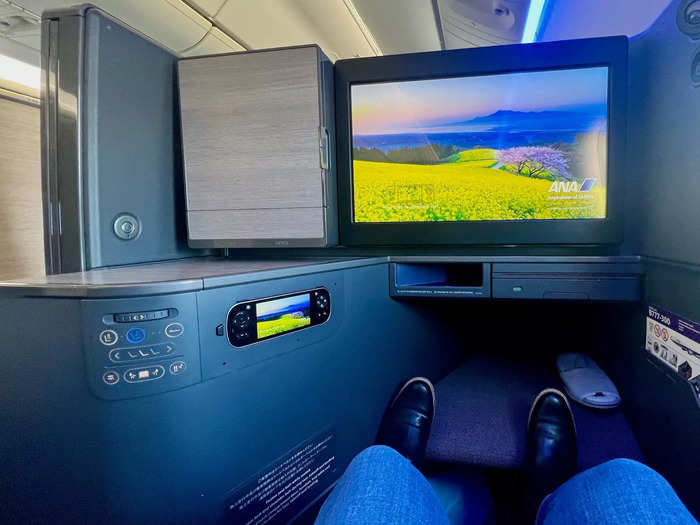
I spent 14 hours flying in ANA's hotel-like business class suite, aptly dubbed "The Room." The March flight was on the carrier's Boeing 777-300ER.
The third five-star carrier I experienced this year was Korean Air from Los Angeles to Seoul in June.
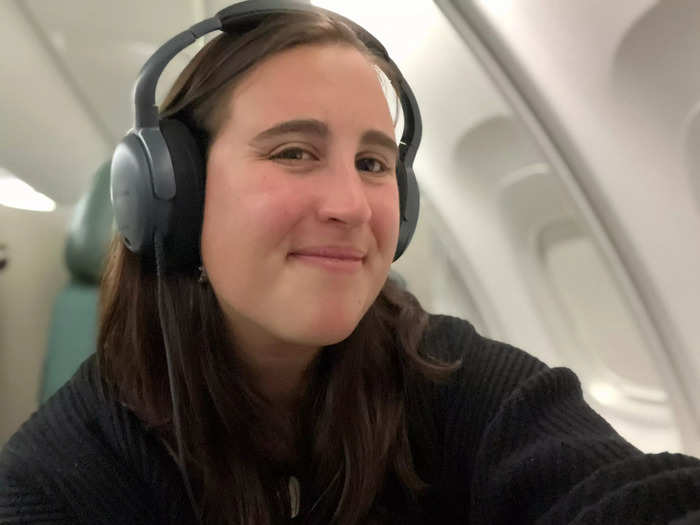
The carrier is one of the few still flying the iconic Boeing 747 double-decker jet, sporting nearly two dozen business class seats on the second level.
Every seat across these three carriers was a different design, but each spacious lounger came with the regular bells and whistles of business class.
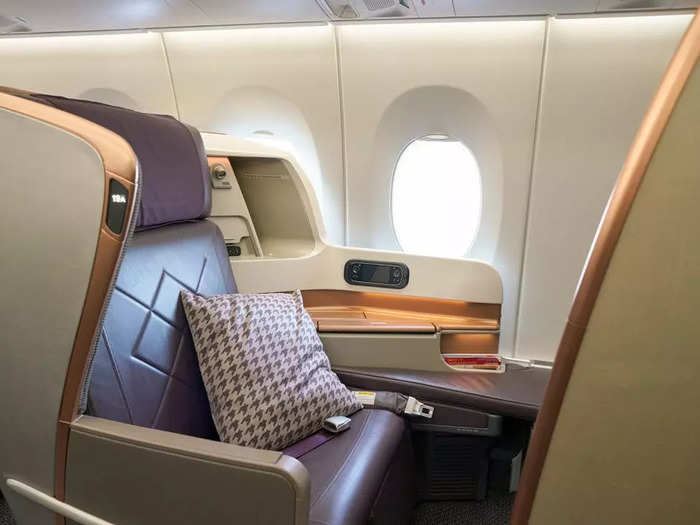
This includes lie-flat beds, ample storage, inflight entertainment, premium meals, and plenty of space.
Across the board, the airlines had great inflight entertainment. Singapore and ANA had bigger screens, though.
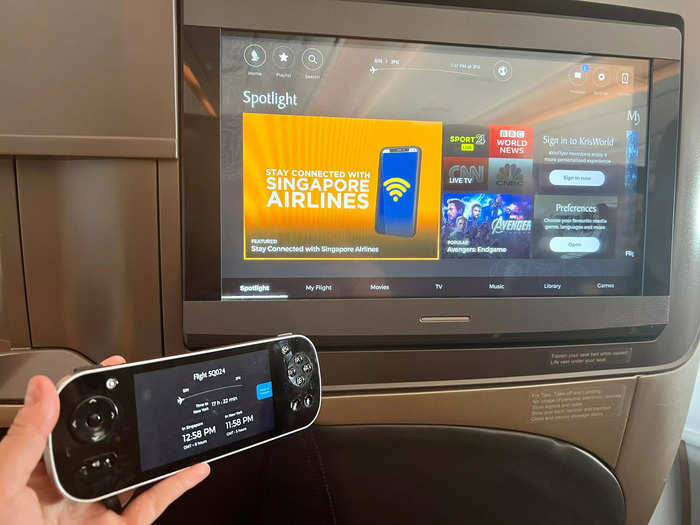
ANA's screen is the biggest at 24 inches wide, while Singapore follows with an 18-inch seatback television.
Each airline also offered a convenient remote, too.
Korean Air's 17-inch TV is the smallest of the bunch.
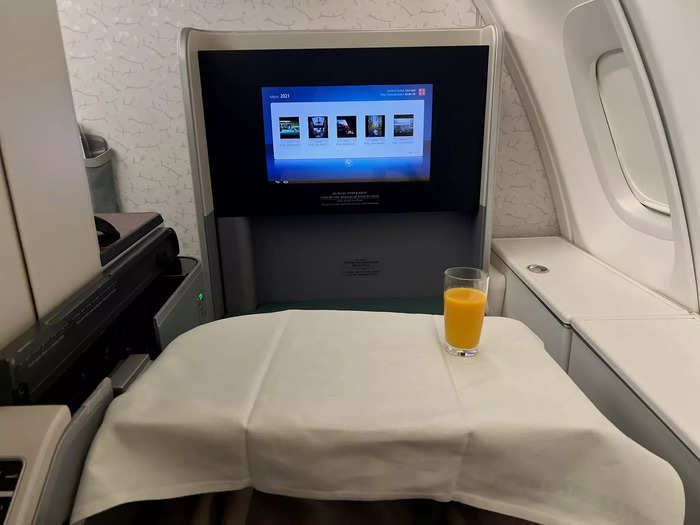
The smaller screen was noticeable considering my 747 bulkhead seat, 16J, sat far away from the screen compared to the other airlines.
Nevertheless, Korean makes up for this with its storage space.
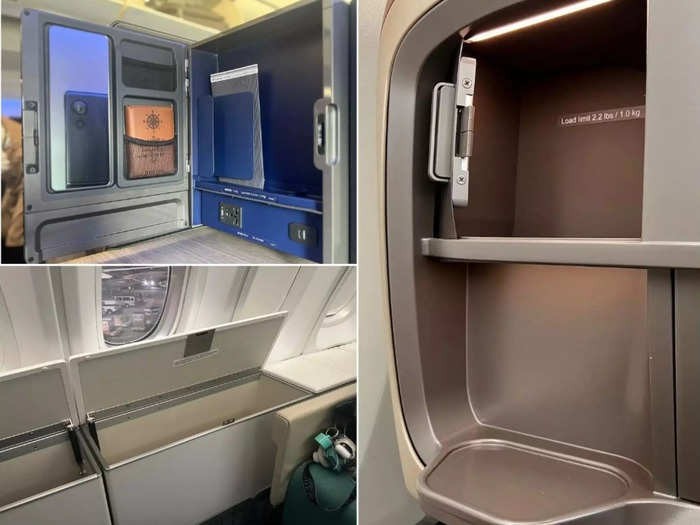
Singapore and ANA offered storage throughout the seat via cubbies and shelves.
However, window seat passengers on Korean's 747 can enjoy huge bins installed along the fuselage wall.
The bins are thanks to the carrier's unique "Apex Suite" design.
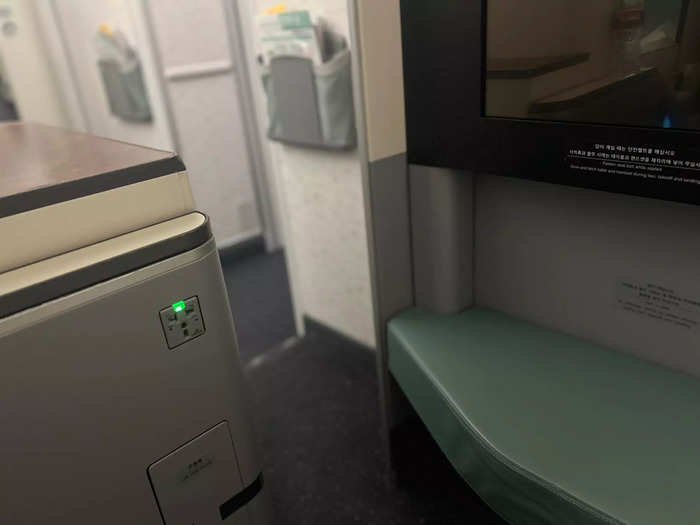
Korean's 747 "Apex Suite" is a unique business class design that allows the carrier to maximize capacity without sacrificing comfort.
It does this by staggering the seats so a walkway can fit in front of each aisle seat. This means window seat passengers will have direct-aisle access — a dealbreaker for some travelers.
However, aisle seat passengers will not have bins — one reason I suggest booking a window.
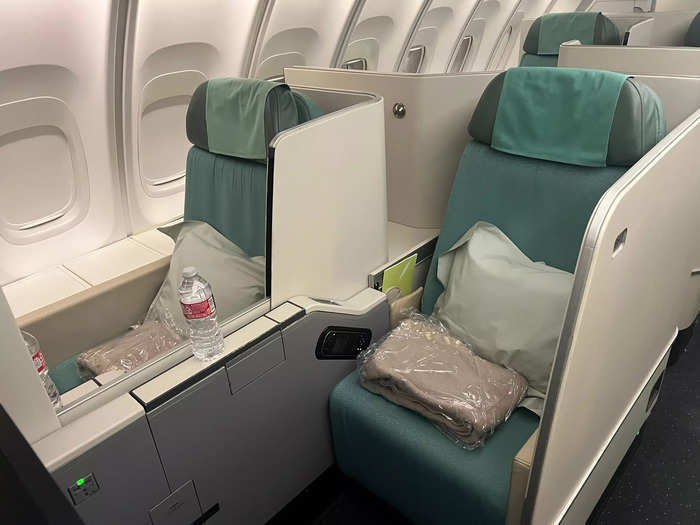
The Apex design gives more space to the window seat travelers on both levels of the 747, meaning they get the bins.
Aisle seat passengers will have to settle for less storage space.
Meanwhile, each airline offered a good amenity kit filled with toiletries, as well as slippers and an eyemask — though I also got pajamas on ANA.
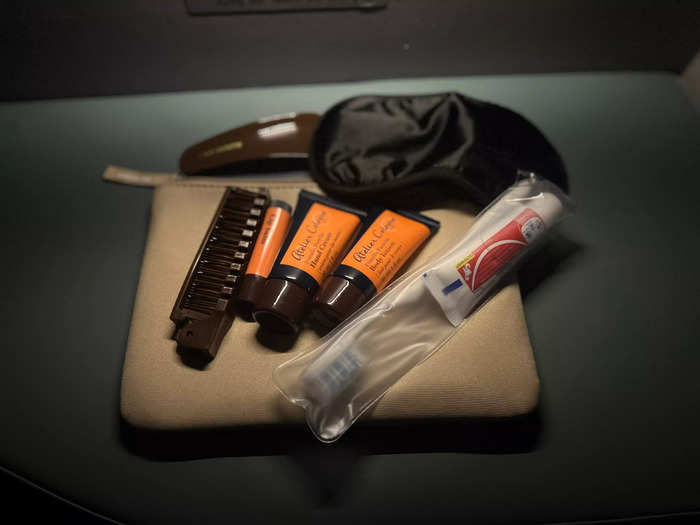
An amenity is expected in business class, and I liked all the ones I got. The pajamas on ANA were a pleasant surprise, though.
Regarding food, almost everything was delicious — but I have my favorites.
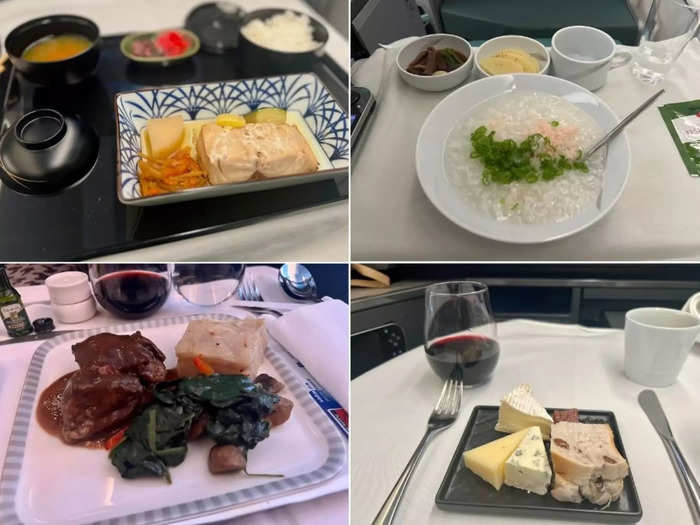
Singapore offered me menus that included beef, fish, noodles, and fruit, though I mostly ate Western-style meals.
I opted for the more traditional meals onboard Korean and ANA, munching on things like miso soup, edamame, and Korean porridge.
My favorite dining experience up until flying on Korean was on Singapore, primarily because of the beef dinner and the "floating island" dessert.
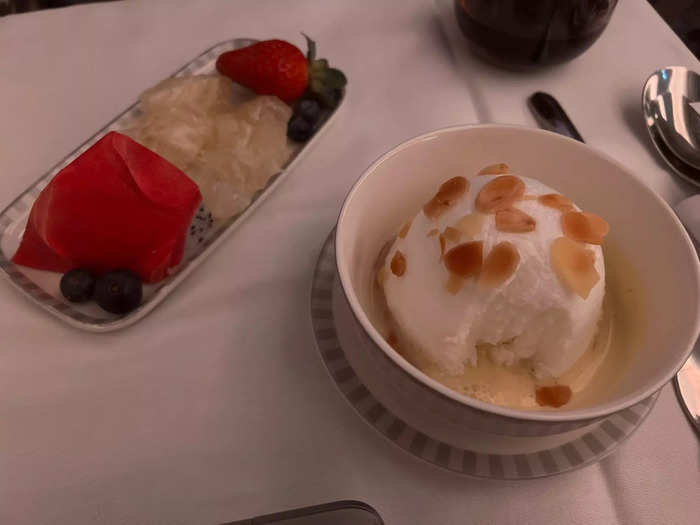
Singapore offers unique "wellness meals" onboard to help reduce things like indigestion and insulin spikes, and I could tell the difference.
The floating island, an egg white dome with almonds and vanilla custard, was particularly tasty and had the perfect level of sweetness for me. It's easily the best dessert I've eaten at 35,000 feet.
However, the bibimbap dish on Korean is now hands-down the best food I've ever had on a plane.
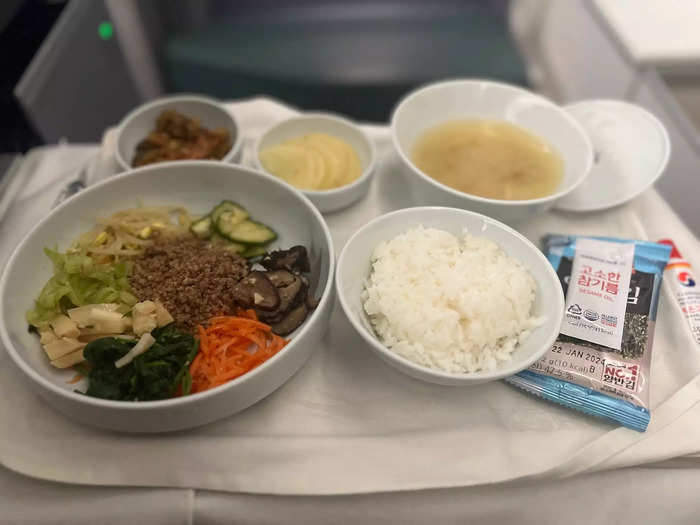
Bibimbap is one of the most well-known dishes in Korea, consisting of a bed of rice topped with meat and assorted vegetables.
The recipe on Korean was minced beef, vegetables, sesame oil, the hot pepper paste known as "gochujang," and seaweed — the latter I used to make little bibimbap wraps.
In addition to seat comforts and tasty food, the five-star airlines even offer luxuries in the lavatories.
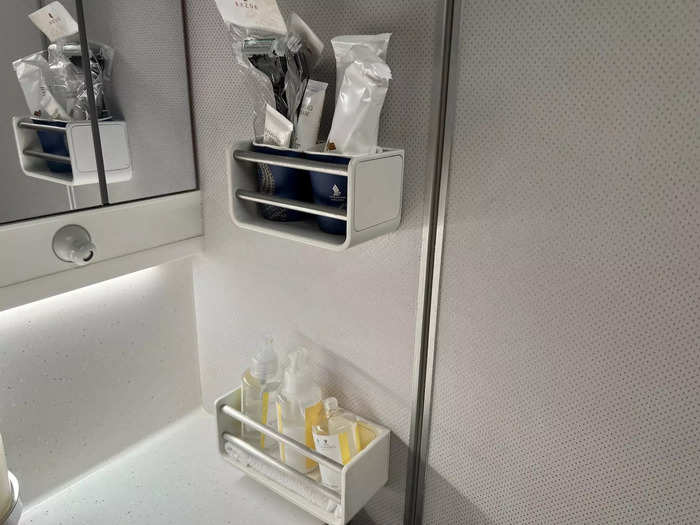
The cleanliness and toiletries were appreciated. In addition to a toothbrush and toothpaste, I also had access to things like mouthwash and a razor.
While Korean's lavatory was simple — yet clean — ANA and Singapore offered things like a full-body mirror and a bidet.
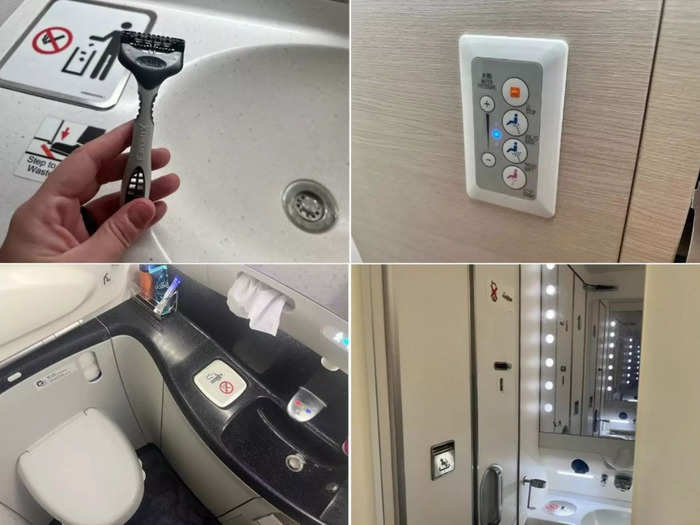
ANA and Japan Airlines have bidets onboard, a gamechanger on the 14-hour journey.
I also appreciated the touchless trashcan on Singapore.
Although every airline easily had more pros than cons, ANA was the only one to offer full privacy.
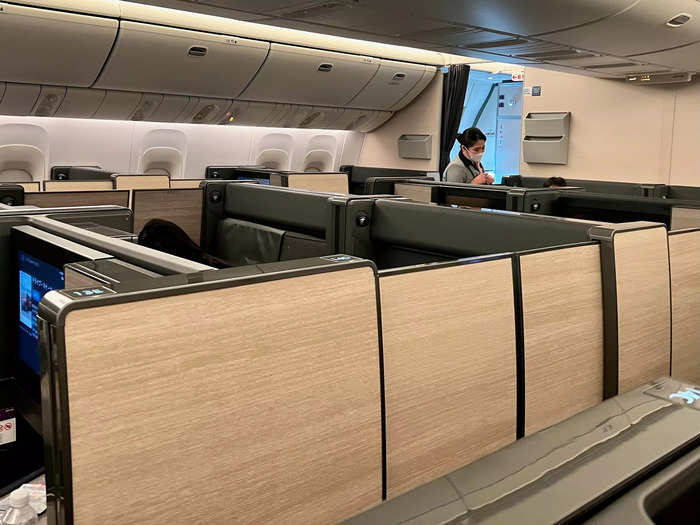
Privacy is the main difference between all three carriers, with ANA offering the most and Singapore offering the least.
The Japanese carrier's "The Room" business class is essentially a tiny hotel room thanks to the sliding door.
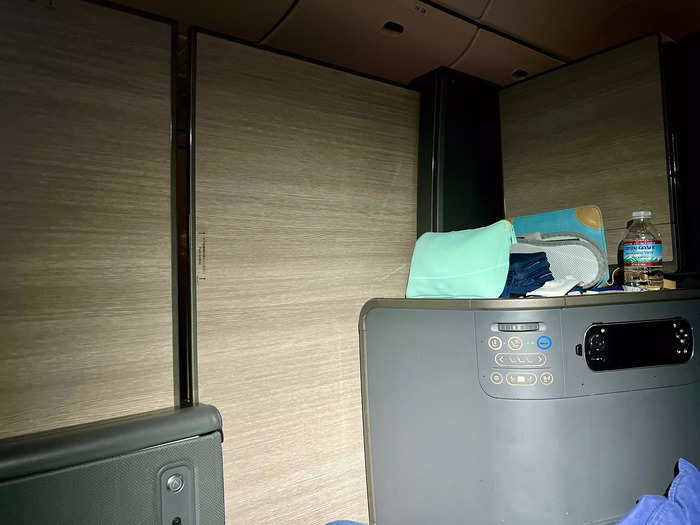
The doors turned ANA's luxury suite into a fully enclosed pod, and I felt cocooned inside the space. The privacy is lightyears ahead of the competition.
While it doesn't have an actual door, the window seat passengers on Korean also get great privacy.
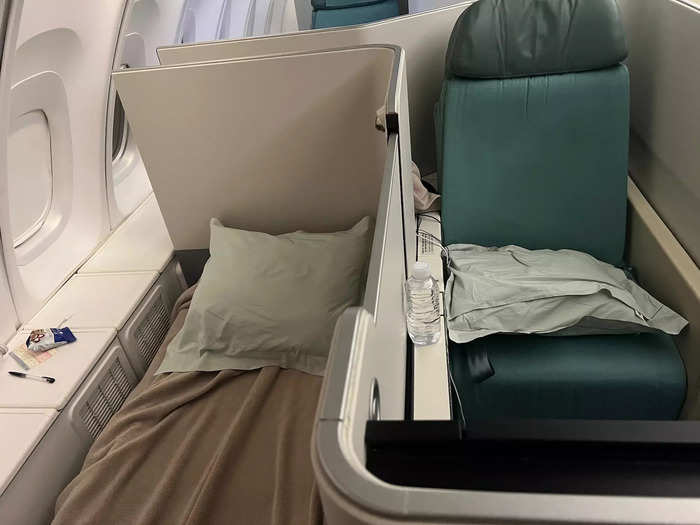
A middle divider separates Korean's 747 Apex Suite seats to block out the neighboring traveler.
This means the aisle seat nearly fully shields the window passenger.
Aisle seat passengers, however, do not have the same level of privacy.
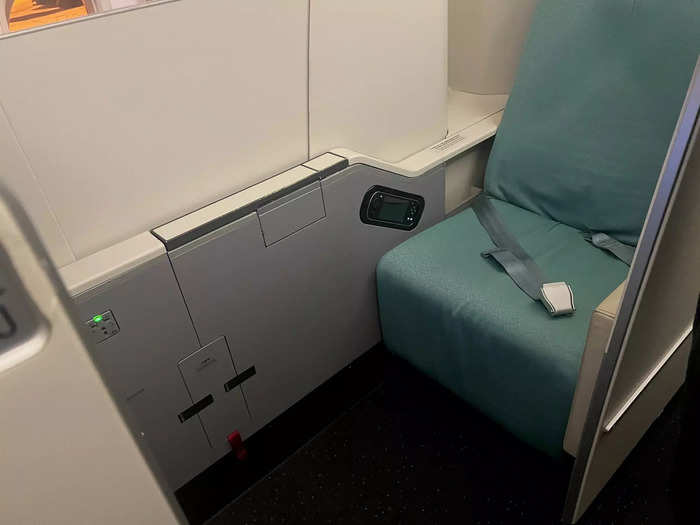
There is no door blocking the aisle, and people can still look in more easily than the window seat.
The wings on Singapore offered the least privacy, but I still had my own personal space without the feeling of eyes on me.
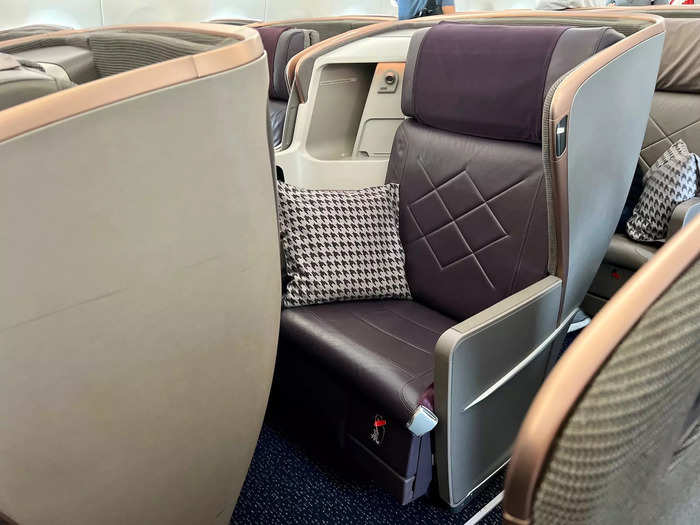
It helped that I snagged a last-minute window seat because I was at least shielded from the person in front and behind me, with only the center section in view.
The two middle seats have a divider between them, as is the same on ANA and Korean.
The beds are the other significant difference between Singapore, ANA, and Korean's business class.
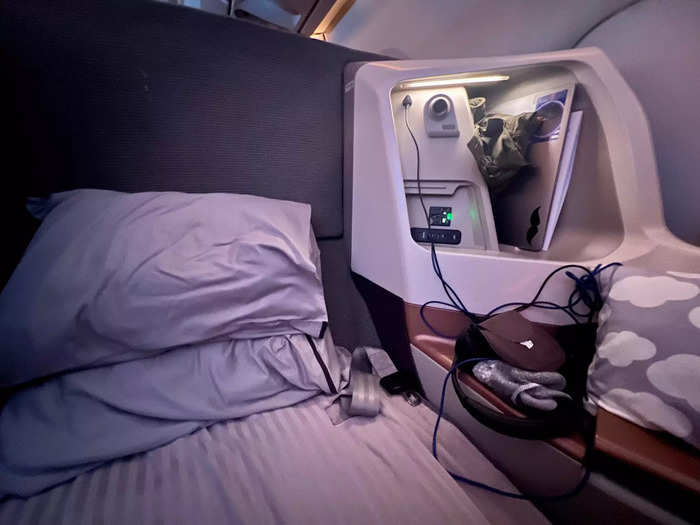
Some business class beds are extremely narrow, so I was happy two of these carriers offered something more comparable to a day bed.
Of the three, ANA and Singapore had the bigger beds each large enough to lay on my stomach.
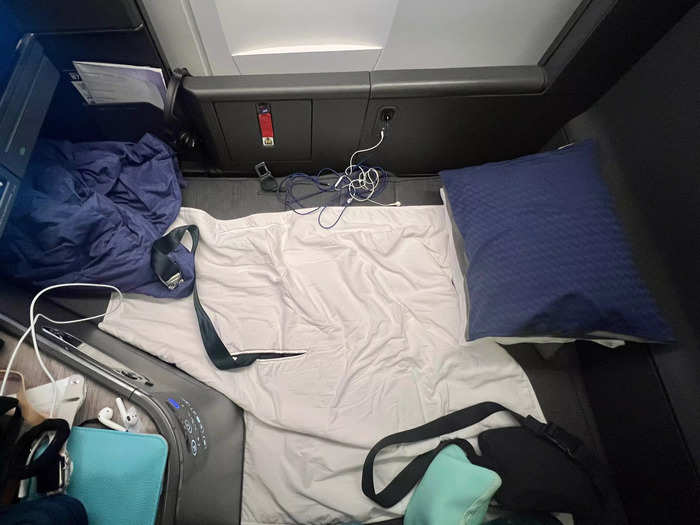
At home, I sleep primarily on my stomach and side — sleeping on my back can be challenging.
Thankfully, ANA and Singapore's couch-like seats become giant beds big enough to sprawl out.
I liked ANA's bed better than Singapore's for one reason, though: I didn't have to set it up manually.
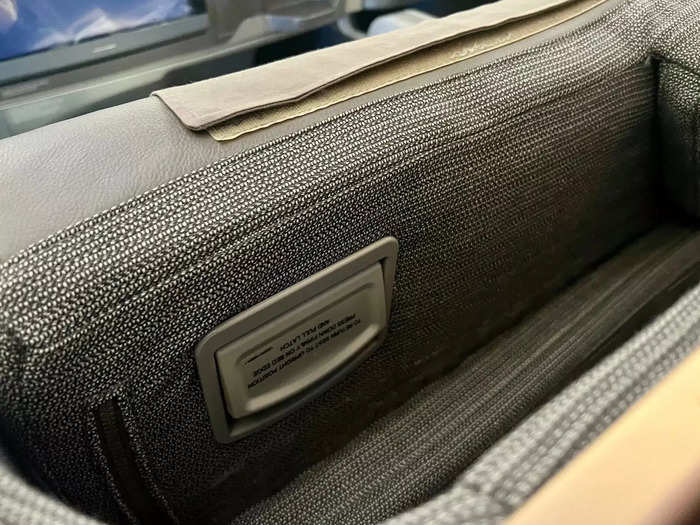
The lie-flat bed on the Japanese airline could be adjusted via a set of buttons along the seat.
The one on Singapore, however, required passengers to pull a handle to create the bed — like flipping down the seats in a car.
This was a little inconvenient, and I finally had to ask a flight attendant for help when I couldn't find a button for the bed.
Meanwhile, Korean did not have the same giant bed that its competitors offered.
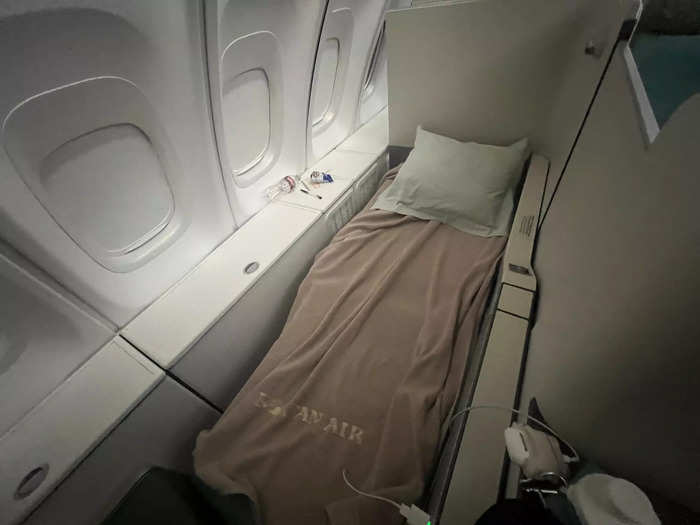
Korean's bed was skinnier, though I still found it roomier than other business classes on carriers like the German leisure carrier Condor.
I managed to get comfortable on my side quickly, though I wish I had been given two pillows like on ANA and Singapore.
Considering everything, my overall favorite business class experience of the three was on ANA.
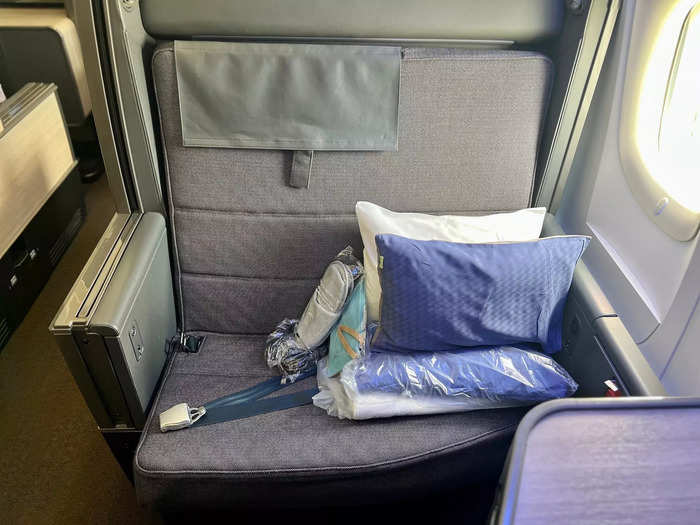
All three airlines are considered five-star, but ANA's "The Room" business class is by far the most luxurious.
The airline's giant bed and full privacy door help it check every box that I personally hope to find in business class.
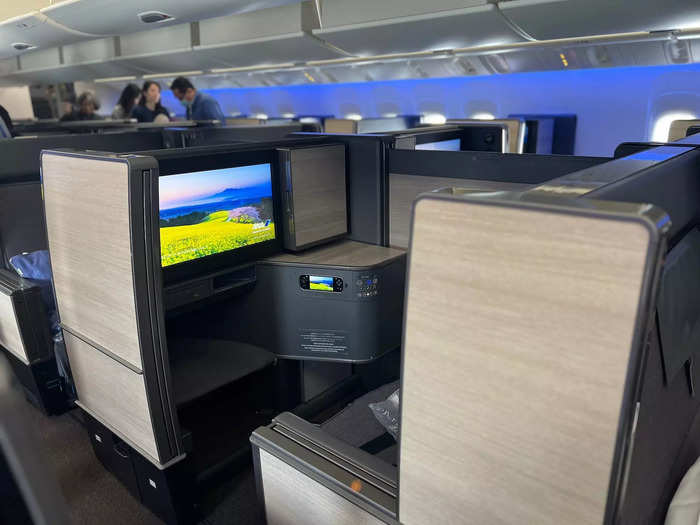
The food was delicious, I loved the cozy suite that was more of a hotel room, the gigantic bed made sleep easy, and there was more than enough storage space so I didn't feel cluttered.
After ANA, I'd place Singapore next followed by Korean.
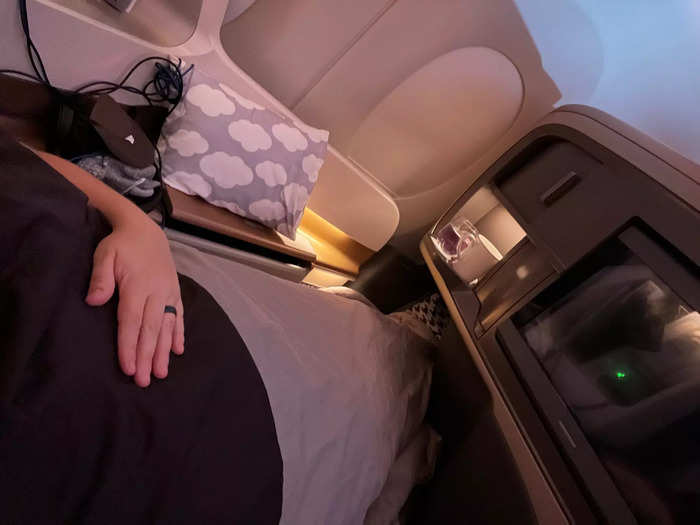
Singapore and Korean are close, with the former having a better bed — albeit I have to set it up manually — and the latter offering the most storage I've ever seen on an airplane.
But, Korean's bed and TV were smaller compared, and there was no internet onboard.
While I loved Korean's nostalgic 747, the lack of WiFi and smaller TV were hard to overlook.
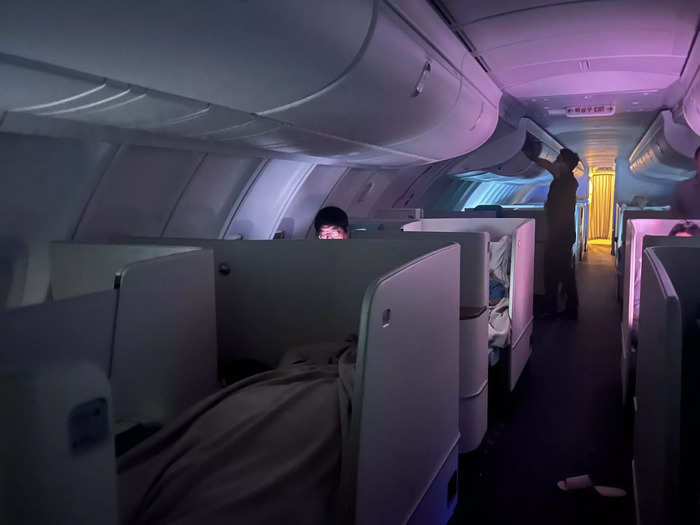
The legendary Queen of the Skies may be older than the internet, but many business travelers cannot disconnect for 12 hours.
Nevertheless, its upper deck still gave that "private jet" feel that is becoming increasingly rare now that the 747 is losing popularity in favor of more fuel-efficient widebodies.
Popular Right Now
Popular Keywords
Advertisement